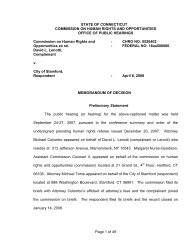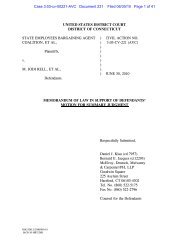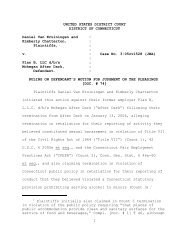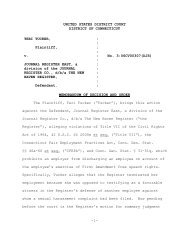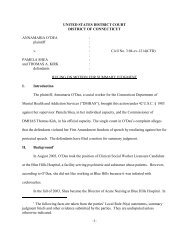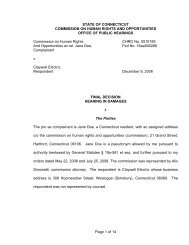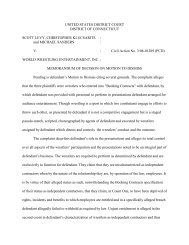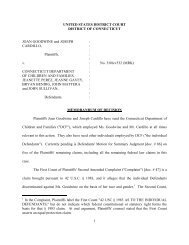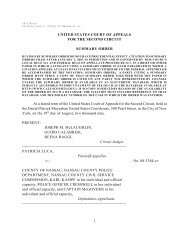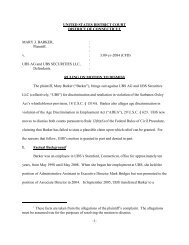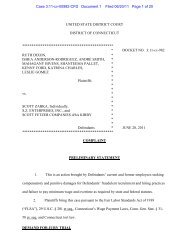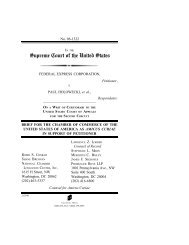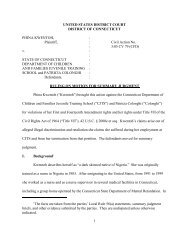Radecki v. GlaxoSmithKline - Connecticut Employment Law Blog
Radecki v. GlaxoSmithKline - Connecticut Employment Law Blog
Radecki v. GlaxoSmithKline - Connecticut Employment Law Blog
Create successful ePaper yourself
Turn your PDF publications into a flip-book with our unique Google optimized e-Paper software.
sanction in response to perjury is a remedy within the inherentpower of the court. Chambers v. NASCO, Inc., 501 U.S. 32, 45(1991). No lesser sanction would constitute an adequatestatement as to the seriousness of the effect of the plaintiff’smisconduct on the adjudicative process in this case and provideadequate protection for the integrity of trial proceedings bydeterring others who might be tempted to engage in suchmisconduct. In considering the cases where a sanction in theform of costs and expenses was imposed, the court places weighton the fact that those cases did not involve perjury in a formalproceeding, i.e., the context in which such strong language wasused by the Supreme Court in ABF Freight System. Bower andRybner both involved perjury during a deposition, and in eachcase, the perjury was disclosed before trial by counsel for theperson who gave the perjurious testimony–-albeit not until it wasapparent that the perjury was about to be uncovered. <strong>Radecki</strong> hadan opportunity to make an accurate voluntary disclosure, butinstead made one that was misleading. In Bower, the courtconcluded that the perjury had little effect on the merits, andin both cases, the perjury occurred sufficiently in advance ofthe trial on the merits so that the opposing party had sufficienttime to be prepared for trial with the benefit of truthfultestimony. Here, it appears that the perjury would have had amaterial effect on the trial, and because the perjury occurred at-17-



